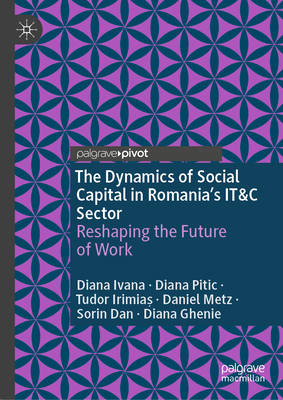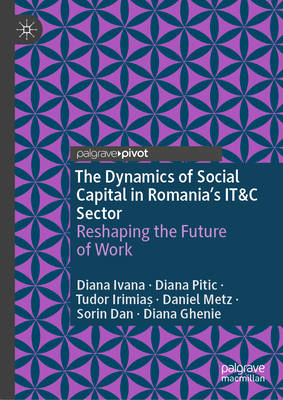
Bedankt voor het vertrouwen het afgelopen jaar! Om jou te bedanken bieden we GRATIS verzending (in België) aan op alles gedurende de hele maand januari.
- Afhalen na 1 uur in een winkel met voorraad
- In januari gratis thuislevering in België
- Ruim aanbod met 7 miljoen producten
Bedankt voor het vertrouwen het afgelopen jaar! Om jou te bedanken bieden we GRATIS verzending (in België) aan op alles gedurende de hele maand januari.
- Afhalen na 1 uur in een winkel met voorraad
- In januari gratis thuislevering in België
- Ruim aanbod met 7 miljoen producten
Zoeken
The Dynamics of Social Capital in Romania's It&c Sector
Reshaping the Future of Work
Diana Ivana, Diana Pitic, Tudor Irimiaș, Daniel Metz, Sorin Dan, Diana Ghenie
Hardcover | Engels
€ 68,95
+ 137 punten
Omschrijving
Post-pandemic, there has been a period of crisis and dramatic flux in the recruitment, motivation, and retention of employees within the IT&C sector, with turnover rates reaching almost 20%. In this book's survey of employees in the IT&C sector in Romania, it is revealed that 80% of departures were motivated by the belief that "the company is not the same as it was". Adopting the framework of organizational social capital, these findings are assessed in the context of our current landscape of remote and hybrid work, AI and a new generation who joined the workforce after the pandemic. Organizational social capital, as a concept, is centred on the idea that social capital fosters the development of intellectual capital and should be a priority for successful organizations. This book develops a theoretical framework for OSC that is specific to the contemporary IT&C sector and, particularly, the growth of remote and hybrid work. It will be of great interest to scholars and students of organizations, the IT&C sector and HRM.
Specificaties
Betrokkenen
- Auteur(s):
- Uitgeverij:
Inhoud
- Aantal bladzijden:
- 89
- Taal:
- Engels
Eigenschappen
- Productcode (EAN):
- 9783032018731
- Verschijningsdatum:
- 12/11/2025
- Uitvoering:
- Hardcover
- Formaat:
- Genaaid
- Afmetingen:
- 148 mm x 210 mm
- Gewicht:
- 240 g

Alleen bij Standaard Boekhandel
+ 137 punten op je klantenkaart van Standaard Boekhandel
Beoordelingen
We publiceren alleen reviews die voldoen aan de voorwaarden voor reviews. Bekijk onze voorwaarden voor reviews.









